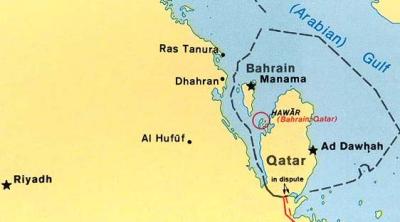
Israel and Bahrain: partners in repression

Israeli Foreign Minister Eli Cohen met Sept. 4 with the crown prince of Bahrain, Salman bin Hamad al-Khalifa, at Gudaibiya Palace in the capital Manama, to discuss boosting trade and diplomatic ties, which were first established in 2020 as part of the so-called Abraham Accords. Cohen said he hoped this would be a precedent for "normalization" of Israel's relations with other Arab states. (ToI, Al Jazeera) Tellingly, the meeting came as Israel and Bahrain are each facing hunger strikes in their prisons, with political detainees protesting harsh conditions and restrictions on their basic rights.
The day before Cohen arrived in Manama, the Supreme Emergency Committee for Palestinian Prisoners announced that Palestinian detainees in Israeli prisons are launching an indefinite hunger strike in response to policies instated by hardline National Security Minister Itamar Ben-Gvir. "The ignorant extremist Ben-Gvir appears before us with a new decision that harms our most sacred sanctities by reducing visits to our families to once every two months, thinking that we may surrender or tire in the face of his aggression and arrogance," said the emergency committee. (Jerusalem Post)
Bahrain is meanwhile witnessing the largest hunger strike among prisoners in its history. Activists estimate more than 800 political prisoners are participating in the strike that began Aug. 7, although the government places the figure at 120. The prisoners are demanding visitation rights, access to adequate medical treatment, and greater freedom of movement. The prisoners are currently allowed only one hour outside their cells each day. They are also demanding an end to use of solitary confinement; some detainees have been in solitary confinement for over a year. Most of the prisoners are facing charges related to the 2011 Arab Revolution protests in Bahrain. (PRI)
Palestinian activist Khader Adnan died May 2 in an Israeli prison following a hunger strike that lasted 86 days.

